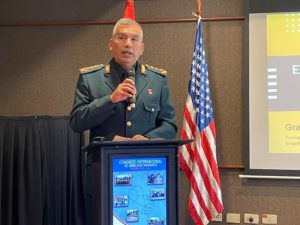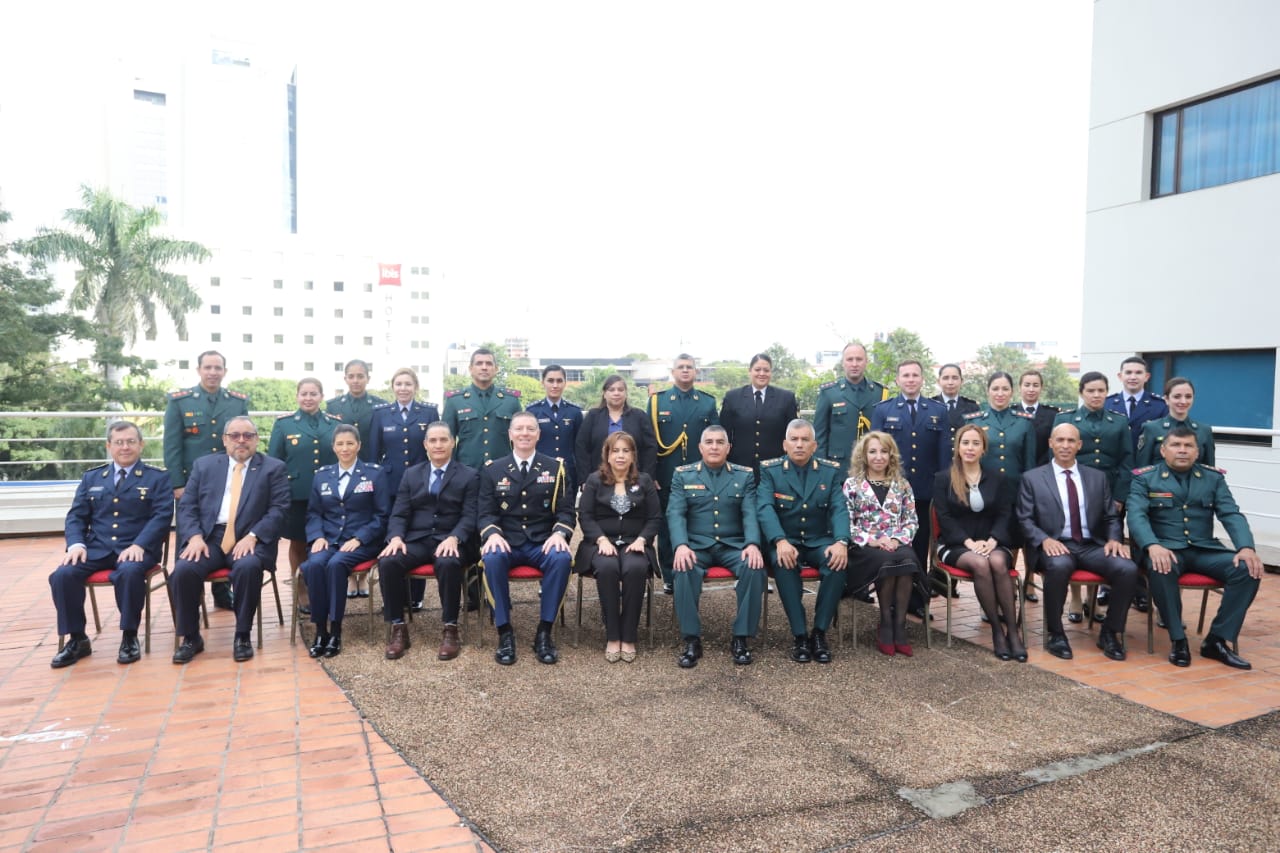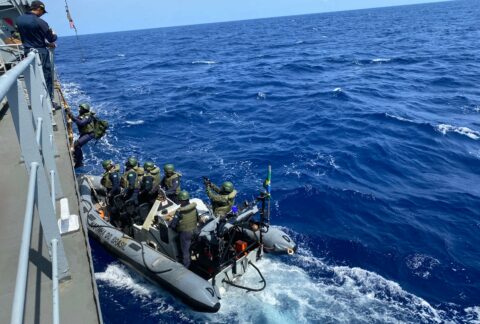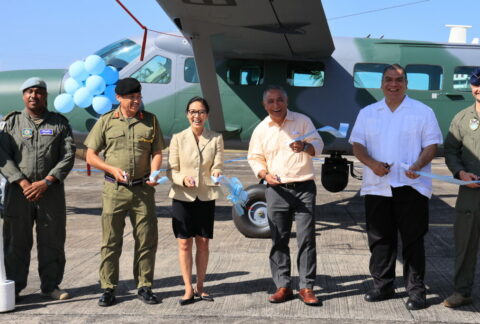The Human Rights Initiative (HRI) is a program U.S. Southern Command (SOUTHCOM) launched in 1997, which seeks to bring together representatives of the military and security forces of Central America, South America, and the Caribbean to institutionalize human rights (HR). The program, which will turn 25 years old in 2022, focuses on four areas: policy and doctrine, education and training, internal control systems, and cooperation with civilian authorities.
The most recent activity of SOUTHCOM’s Human Rights Office was a seminar on the topic, held in Paraguay’s capital, Asunción, June 28-30. “I consider this seminar to be a very important activity for Paraguayan state security agencies to advance in the solidification of their human rights protection bodies, which will be a very important milestone in their institutional strengthening,” Gladys Ruiz Pecci, Paraguay’s vice minister of National Defense, said in her opening speech.
11 countries
Paraguay is one of 11 countries that are officially part of SOUTHCOM’s HRI; the others are Bolivia, Colombia, Costa Rica, Dominican Republic, El Salvador, Guatemala, Honduras, Panama, Peru, and Uruguay.
“The Paraguayan Armed Forces are increasingly integrated into civil society. And for this reason, ongoing doctrine education is necessary, of which Human Rights and International Humanitarian Law [IHL] are part,” Colonel Ceferino Morel Martínez, HR director of the Paraguayan Armed Forces, said.

“Military doctrine is defined as the set of techniques, tactics, strategies, and practices aimed at confrontations within a warlike conflict for the purpose of obtaining victory. Specifically on the topic that brings us together today, the Human Rights and International Humanitarian Law subject has been included in the curricula of the different teaching institutes of our country’s Army,” Major General Manuel Rodríguez Sosa, commander of the Paraguayan Army’s Military Teaching Institutes Command, said. Colonel Ernesto Cabrera, Paraguayan Air Force Legal director, expanded on the topic of HR and IHL education at the various levels within the Paraguayan Armed Forces during his presentation.
Pascal Pinot, armed and security forces delegate of the International Committee of the Red Cross, spoke virtually, and addressed the use-of-force rules of various security forces, whose limits “are defined through the concept of direct participation in hostilities.” Pinot explained that these limits are much more difficult to define in non-international armed conflicts, that is, in the internal conflicts of each country, because these countries are often not properly trained to deal with them.
Women, Peace and Security
Gladys Zunilda Borja Aveiro, minister and executive secretary of Paraguay’s National Emergency Secretariat, introduced the Women, Peace, and Security (WPS) program. “The Women, Peace, and Security program recognizes the diverse roles that women play as field agents in the prevention and resolution of conflicts, in the fight against terrorism and violent extremism, as well as in peace and stability building,” she said.
U.S. Air Force Lieutenant Colonel Duilia Turner, head of the WPS program at SOUTHCOM, conducted the workshop on this topic. “Many times, we mistake this program for a women’s club, a topic only relevant to women. But the truth is that human potential belongs to all of us, men and women.” The issue of gender inclusion was widely discussed, including debates and talks moderated by the HR and IHL director of Paraguay’s Ministry of National Defense, Attorney Amalia Quintana.
In addition to regular presentations by members of SOUTHCOM’s Human Rights Office in attendance (José Rodríguez, acting head; José Solís, coordinator; and Daniel Baldizón, technical secretary), the Human Rights Seminar featured two virtual presentations. Pat Paterson, from the William J. Perry Center for Hemispheric Defense Studies in Washington D.C., spoke about IHL in light of the Russian invasion of Ukraine . Dr. Antonio Raimondo, director of the Western Hemisphere Institute for Security Cooperation (WHINSEC) Human Rights Center, and U.S. Army Sergeant First Class Javier Pérez, discussed the use of force in police support operations.
The activities ended with a discussion on all the topics addressed during the seminar and the presentation of certificates of participation.









